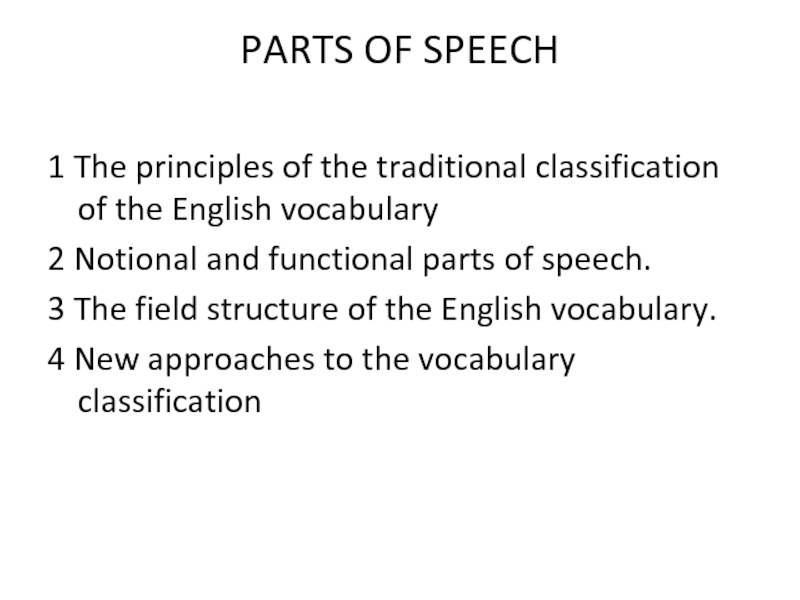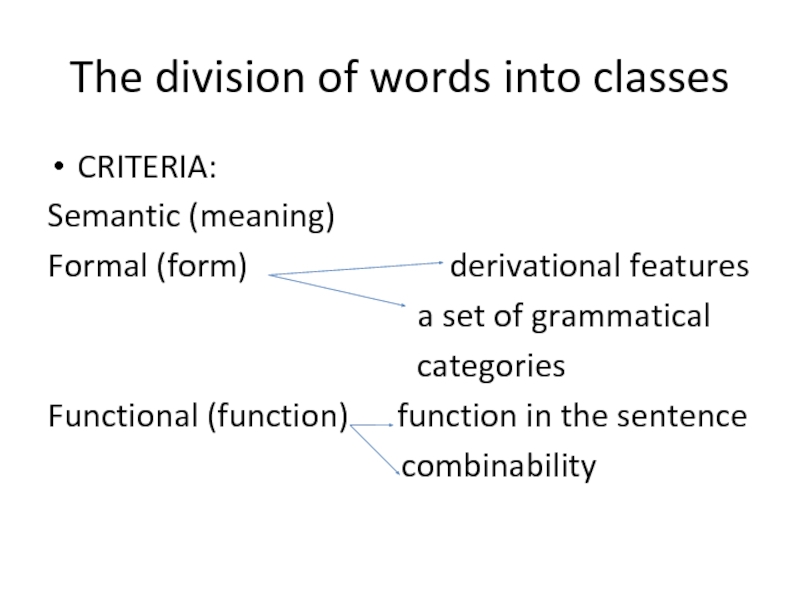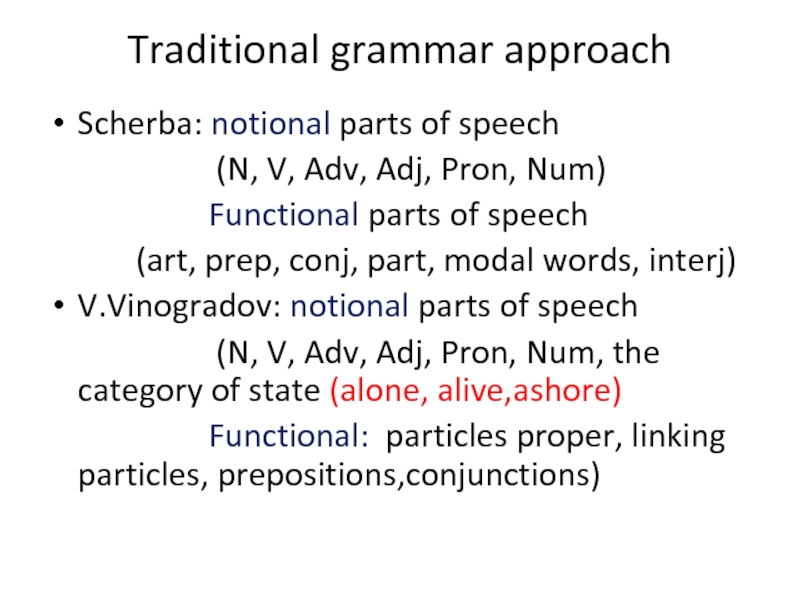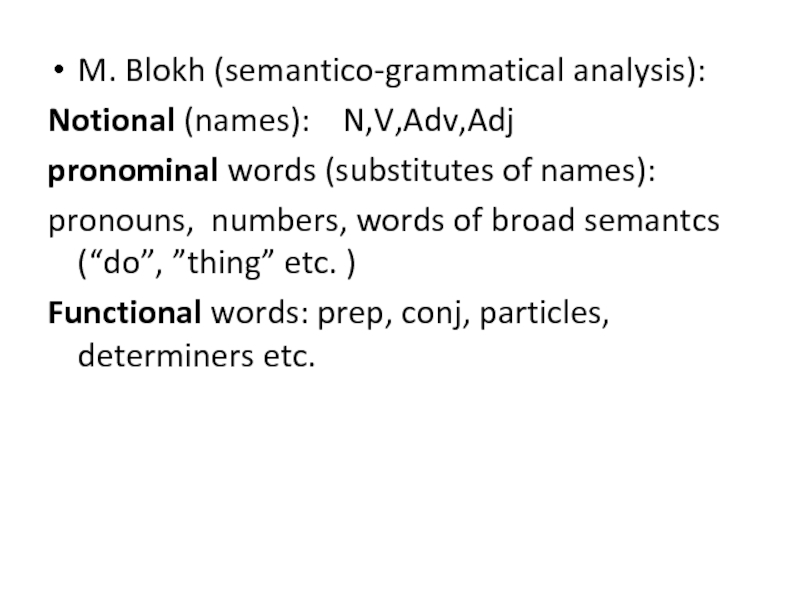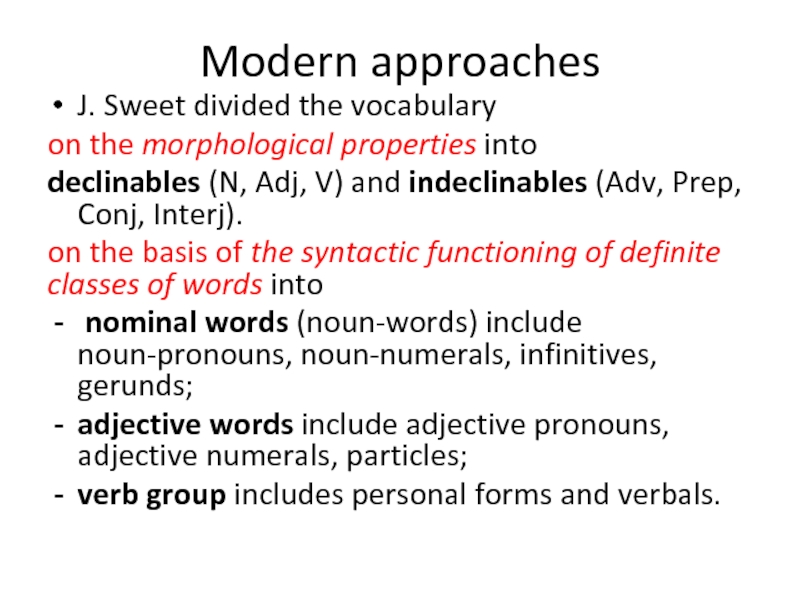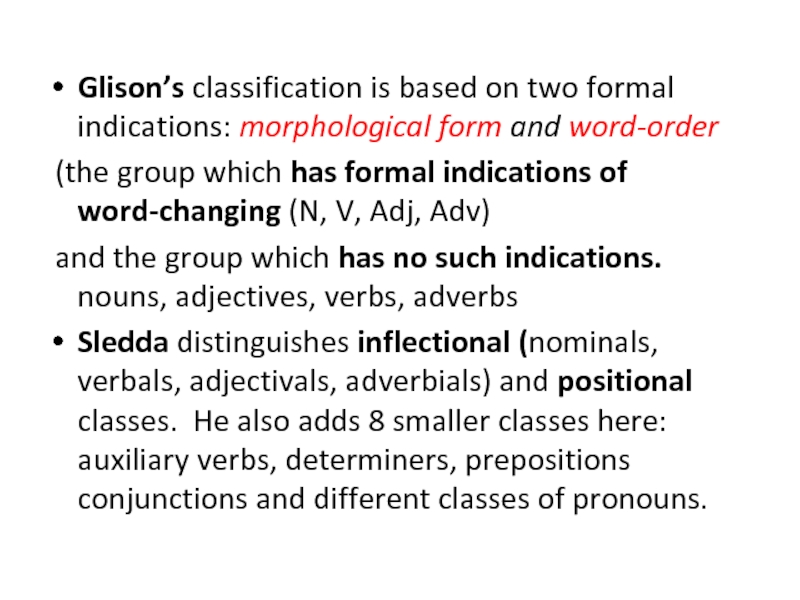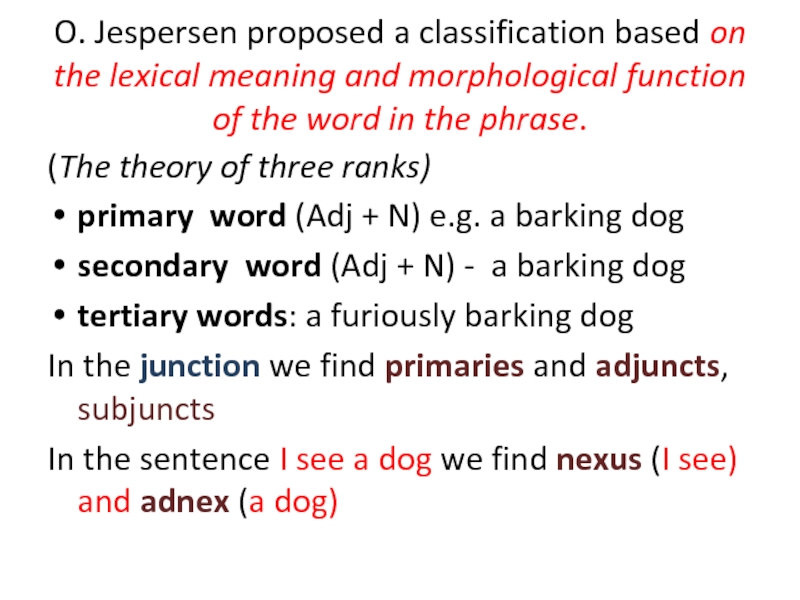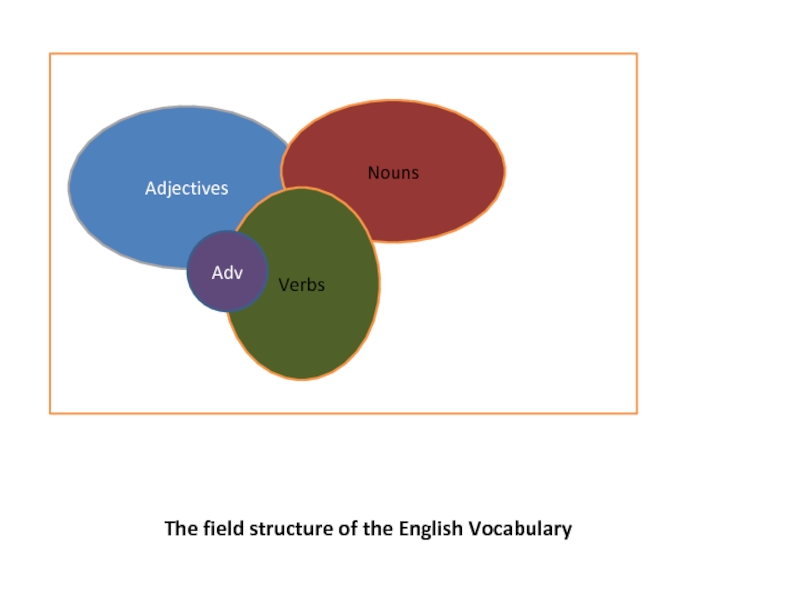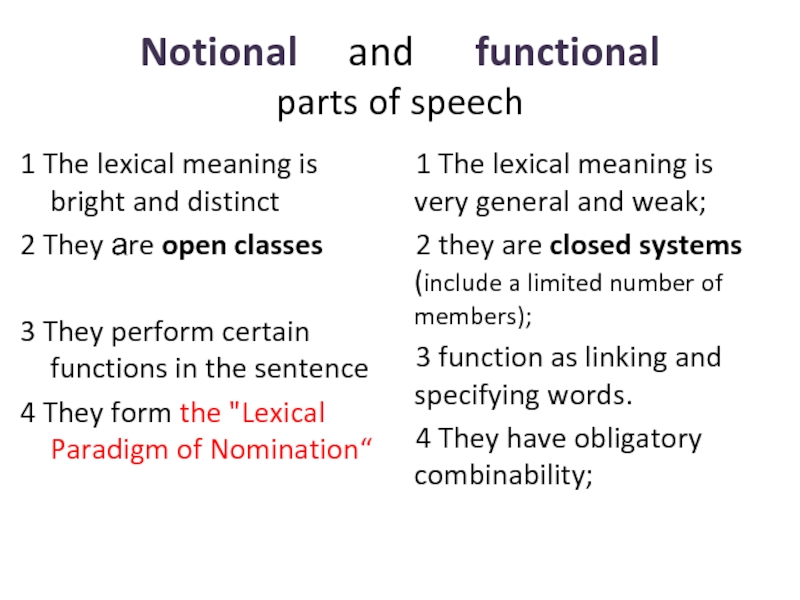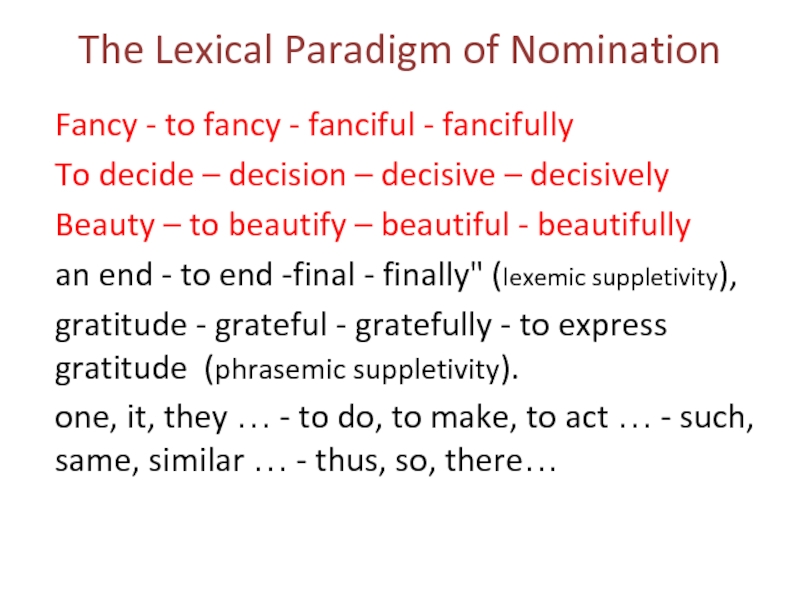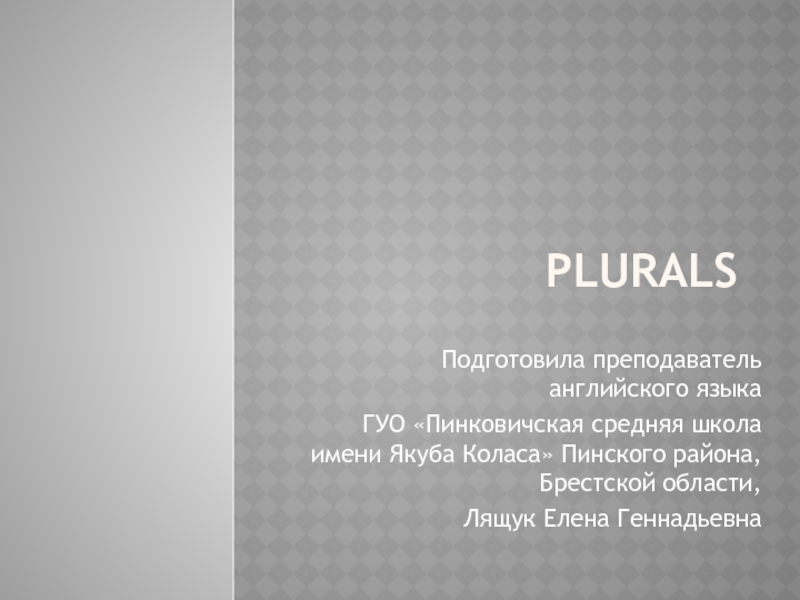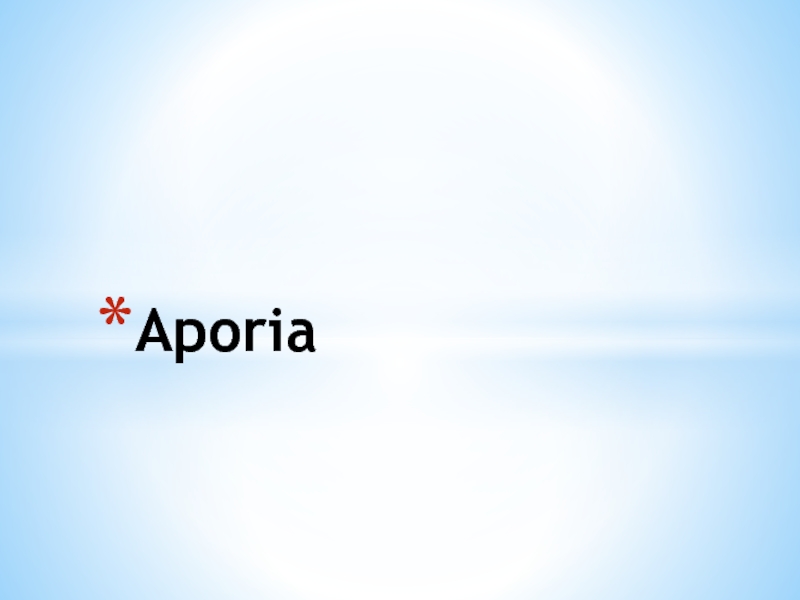- Главная
- Разное
- Дизайн
- Бизнес и предпринимательство
- Аналитика
- Образование
- Развлечения
- Красота и здоровье
- Финансы
- Государство
- Путешествия
- Спорт
- Недвижимость
- Армия
- Графика
- Культурология
- Еда и кулинария
- Лингвистика
- Английский язык
- Астрономия
- Алгебра
- Биология
- География
- Детские презентации
- Информатика
- История
- Литература
- Маркетинг
- Математика
- Медицина
- Менеджмент
- Музыка
- МХК
- Немецкий язык
- ОБЖ
- Обществознание
- Окружающий мир
- Педагогика
- Русский язык
- Технология
- Физика
- Философия
- Химия
- Шаблоны, картинки для презентаций
- Экология
- Экономика
- Юриспруденция
Parts of speech презентация
Содержание
- 1. Parts of speech
- 2. The division of words into classes
- 3. Traditional grammar approach Scherba: notional parts
- 4. M. Blokh (semantico-grammatical analysis): Notional
- 5. Modern approaches J. Sweet divided the vocabulary
- 6. Glison’s classification is based on two
- 7. O. Jespersen proposed a classification based on
- 8. The field structure of the English Vocabulary Adjectives Nouns Verbs Adv
- 9. Notional and functional
- 10. The Lexical Paradigm of Nomination Fancy
Слайд 1PARTS OF SPEECH
1 The principles of the traditional classification of the
2 Notional and functional parts of speech.
3 The field structure of the English vocabulary.
4 New approaches to the vocabulary classification
Слайд 2The division of words into classes
CRITERIA:
Semantic (meaning)
Formal (form)
a set of grammatical
categories
Functional (function) function in the sentence
combinability
Слайд 3Traditional grammar approach
Scherba: notional parts of speech
Functional parts of speech
(art, prep, conj, part, modal words, interj)
V.Vinogradov: notional parts of speech
(N, V, Adv, Adj, Pron, Num, the category of state (alone, alive,ashore)
Functional: particles proper, linking particles, prepositions,conjunctions)
Слайд 4
M. Blokh (semantico-grammatical analysis):
Notional (names): N,V,Adv,Adj
pronominal words (substitutes of
pronouns, numbers, words of broad semantcs (“do”, ”thing” etc. )
Functional words: prep, conj, particles, determiners etc.
Слайд 5Modern approaches
J. Sweet divided the vocabulary
on the morphological properties into
declinables
on the basis of the syntactic functioning of definite classes of words into
nominal words (noun-words) include noun-pronouns, noun-numerals, infinitives, gerunds;
adjective words include adjective pronouns, adjective numerals, particles;
verb group includes personal forms and verbals.
Слайд 6
Glison’s classification is based on two formal indications: morphological form and
(the group which has formal indications of word-changing (N, V, Adj, Adv)
and the group which has no such indications. nouns, adjectives, verbs, adverbs
Sledda distinguishes inflectional (nominals, verbals, adjectivals, adverbials) and positional classes. He also adds 8 smaller classes here: auxiliary verbs, determiners, prepositions conjunctions and different classes of pronouns.
Слайд 7O. Jespersen proposed a classification based on the lexical meaning and
(The theory of three ranks)
primary word (Adj + N) e.g. a barking dog
secondary word (Adj + N) - a barking dog
tertiary words: a furiously barking dog
In the junction we find primaries and adjuncts, subjuncts
In the sentence I see a dog we find nexus (I see) and adnex (a dog)
Слайд 9Notional and functional
parts of speech
1 The
2 They аre open classes
3 They perform certain functions in the sentence
4 They form the "Lexical Paradigm of Nomination“
1 The lexical meaning is very general and weak;
2 they are closed systems (include a limited number of members);
3 function as linking and specifying words.
4 They have obligatory combinability;
Слайд 10The Lexical Paradigm of Nomination
Fancy - to fancy - fanciful -
To decide – decision – decisive – decisively
Beauty – to beautify – beautiful - beautifully
an end - to end -final - finally" (lexemic suppletivity),
gratitude - grateful - gratefully - to express gratitude (phrasemic suppletivity).
one, it, they … - to do, to make, to act … - such, same, similar … - thus, so, there…
